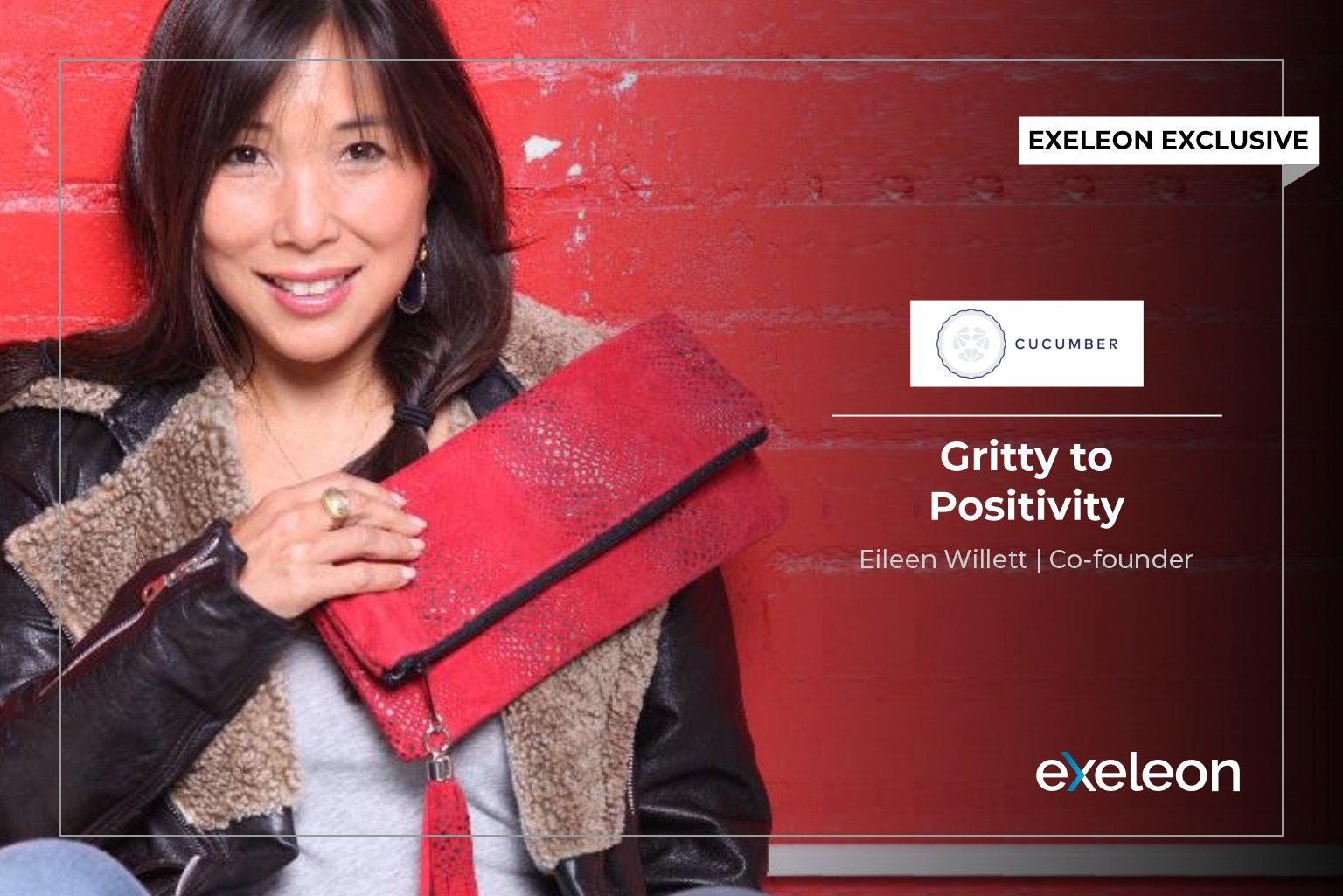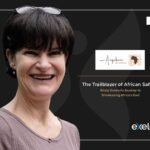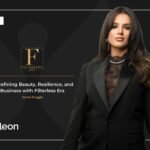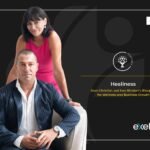
When we look at a company or an entrepreneuer, we tend to primarily look at their current success or prominence. Amidst this, we fail to realize the grit and determination it took for them to power through the periods of struggle, moments of doubt, fear, and anxiety. Truth be told, it is the former that steers them towards success.
Exeleon Magazine is proud to interview one such individual who broke past the shackles of doubt of being a leader to bring forward a change through her brand. Meet Eileen Willett, the Co-founder of Cucumber Clothing. The interview looks into the story of this inspiring individual.
What according to you makes for an inspiring leader? How do you integrate the same in your leadership?
The astonishing thing about becoming the co-founder at Cucumber Clothing is that I have traditionally never thought of myself as a leader. Throughout my career, always in the creative industries from music (Billboard Magazine in Tokyo) to helping start up Nicole Farhi Menswear, as well as my own accessories brand, it’s the creative aspect that has intrigued me.
To me, being an inspiring leader is all about lighting the way down new paths. Something that may have seemed bizarre and unusual a few years ago, ‘suddenly’ becomes the cool new way forward – only that the suddenly happens because of leaders who are not afraid to experiment and try a new way of doing things.
As the co-founder of Cucumber Clothing, I can now see that our sustainable fashion-tech brand is leading the way with its slow fashion ethos, including small batch production, long lasting, seasonless collections, recycled and recyclable packaging and commitment to being made in England. My co-founder, Nancy Zeffman, and I hope that by continually improving on our practices we will prove to be inspirational leaders in our field.
What has been your role as a leader since co-founding Cucumber Clothing?
Being one of a pair, Nancy and I find our roles have a large amount of overlap. Having said that, we both have our areas of interest and expertise. Nancy’s background is in Advertising (ex-Saatchi) so she has proved formidable in sourcing PR leads. To date Cucumber has been featured in almost every national newspaper, as well as on radio, television and in countless vlogs, blogs and podcasts. My background is very fashion-based, so I find myself leading in the branding area. Brand content, imagery, art direction – all of those things that define a brand visually.
What was the thought that led to the inception of the company? What is the history behind the name of the company – Cucumber Clothing?
Nancy and I have been friends for many years, our children were at school together. Over one of our many conversations we bemoaned the fact that the brilliant technology built into our gym kit didn’t exist in our day to day clothing. We loved the fact our gym clothes never crushed, hardly needed a wash, kept us cool and dry whether playing basketball or doing Bikram. Why couldn’t our everyday clothes do the same? Bingo – the kernel of an idea was formed and we haven’t looked back.
Once we decided to go for it, we needed a name! We toyed with many, most of which sounded very pretty, but were meaningless. Cucumber was suggested and we loved the connection between ‘cool as a cucumber’ and our brand. Everyone seems to get it immediately – important for a brand that is mainly online.
What raw materials and technologies are used in your clothing fabrics?
Sourcing our cutting-edge fabrics was a journey! The technology involved is patented and we use several different qualities, all of which perform brilliantly while feeling amazing next to the skin. Our newest fabric incorporates volcanic mineral technology. This natural product requiring no extra water or human-made energy in its manufacture acts to keep the wearer at their optimum temperature at all times. We just love the softness of it!
What has the journey been like for Eileen Willett, from doing your Bachelors from the University of San Francisco to founding a leading fashion company?
Phew – a long one, but as I stated before, one that has fulfilled my creative instincts. I worked as a fashion illustrator straight out of university, then taught English and worked at Billboard while living in Tokyo. I met a charming Englishman there and made the permanent move to London where we raised three children and various pets. I worked at Nicole Farhi, then Nicole Farhi Menswear, then in its nascence, and then launched my own designer/maker brand, Wada Bags which I built up into a successful niche brand. So perhaps it is true to say that I’ve always loved to make beautiful things – being at Cucumber is the proof of that.
Looking back at your career, what would you have done different when starting out?
This one is so easy to answer – I would have backed myself more. It’s so difficult when you are young to realise how much potential you have. So often I held back instead of putting myself forward. At least I’ve learned this lesson later in life.
What has been the biggest driving factor for you as a leader and entrepreneur?
To create beautiful and useful products that people love.
What would be your advice for some of the aspiring women leaders and entrepreneurs?
Do it. There is never a good time to do the big things in life – move, get married, have a baby, start a business. They are all life changing events and can feel tremendously daunting if you think too much. It’s good to write everything down in black and white and make sure things add up from the start, but if you have a great idea you are one of many, if you make it happen, you are one of a very few. Go for it!
Explain the importance of sustainability? How does Cucumber Clothing stand out as one of the pioneers in the sustainable fashion industry?
Before we launched Cucumber Clothing, we wrote out a now ancient business plan. It makes us feel very good to know that right from the beginning we believed that being an ethical and sustainable company formed part of the bedrock of our company. I’ve touched on some of our sustainability keystones already (including small batch production, long lasting, seasonless collections, recycled and recyclable packaging and commitment to being made in England), in addition to these we have now banished all plastic packaging and replaced it with 100% compostable and biodegradable film made from vegetable starch.
All our orders are sent out using Royal Mail which means no extra trucks on the road. We try never to go on sale to prevent a vicious cycle of making too much and having to conceal the true cost of making a garment. We actively want to support British manufacturers and traders. All our trims, extras and packaging are sourced within the UK which means less transport. We know our supply chain very well (the factory dog is called Popeye and likes his food warm!) and that includes looking after our workers. Our collections are made for ‘sustainable washing’, that is infrequent cold washes and no tumble dry or ironing.
Our built in ‘stay-fresh’ technology means Cucumber clothes smell and feel just washed after multiple wears, saving on energy and water. We also have supported charitable enterprises from the start, including Breast Cancer Haven, Prevent Breast Cancer and The Eve Appeal. We know we are not perfect, but we will always try hard to be the best we can.
What has been the biggest roadblock during your journey? What has been your biggest learning?
With just the two of us running all operations, our biggest roadblock is always time, or the lack of it. There is always so much to do in a start-up, time management is of the essence, and when it gets really busy, spare time can seem like gold dust.
We have also found that sometimes we need to trust our instincts. Launching a start-up means we have had to learn on our feet, and at the beginning it was tempting to try and get ‘expert’ advice, even if it didn’t feel right. We have learned that we do know our company best – we love getting expert advice, when we trust the expert, otherwise, we trust ourselves.
What are some of the pre-conceived notions or stereotypes that you have faced being a women entrepreneur?
Being a female entrepreneur in a female facing business means that we have had little experience with stereotypes or pre-conceived notions. In fact, we have been delighted to find that almost everyone we have met, whatever their gender, has been generous with both knowledge and time, expecting nothing in return.
How do you plan to take Cucumber Clothing forward? On a personal front, where do you see yourself standing in the coming years?
We are keen to grow the business, we feel there is so much potential for our brand which straddles the worlds of fashion and technology. We don’t have a detailed five year plan, but we have a lot of ideas that we think will bear fruit.
Co-founding Cucumber has been a fantastic, educational experience for me. I have met so many people and learned so many things which in and of themselves have been fulfilling. Whatever happens, I plan to use my new found knowledge and connections to make good things happen.
Who has been your biggest inspiration among women?
My mother. My mother was a traditional homemaker for most of her adult life, but she taught me life’s most important lessons, to treasure honesty and friendship and that kindness is the root of all the best things in life.
Finally, what do you think is the most important trait for a leader and why?
Grit. You can have ambition, talent and drive, but they have to be mixed in with grit. Leading anything means having to take difficult decisions, sometimes at personal cost. Without grit, nothing would happen.









